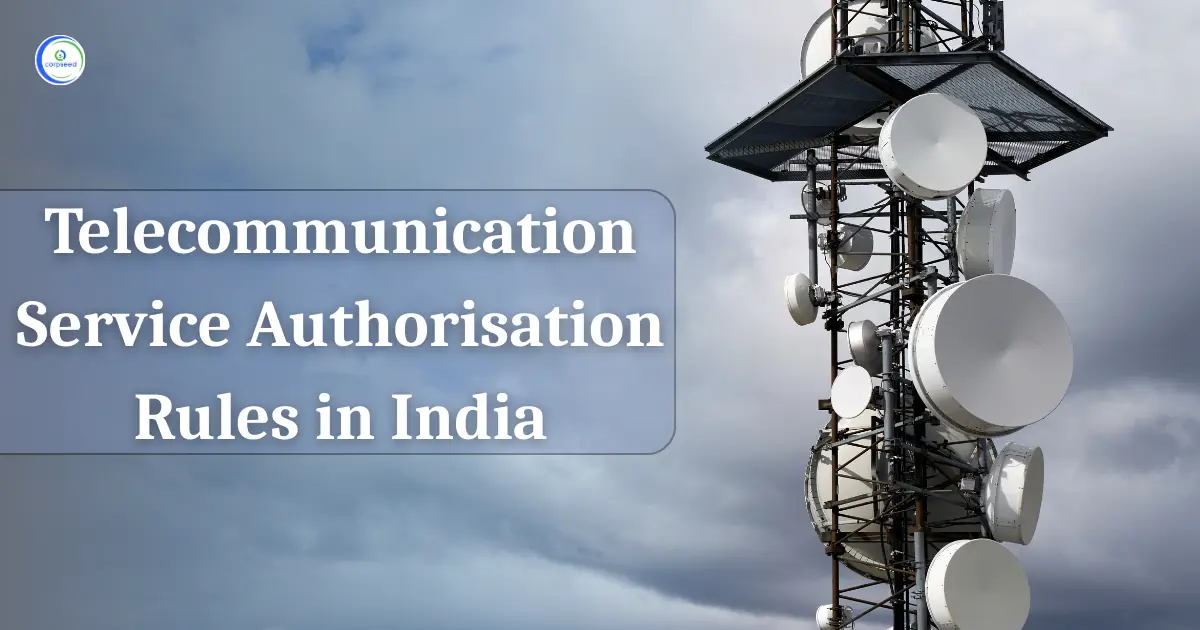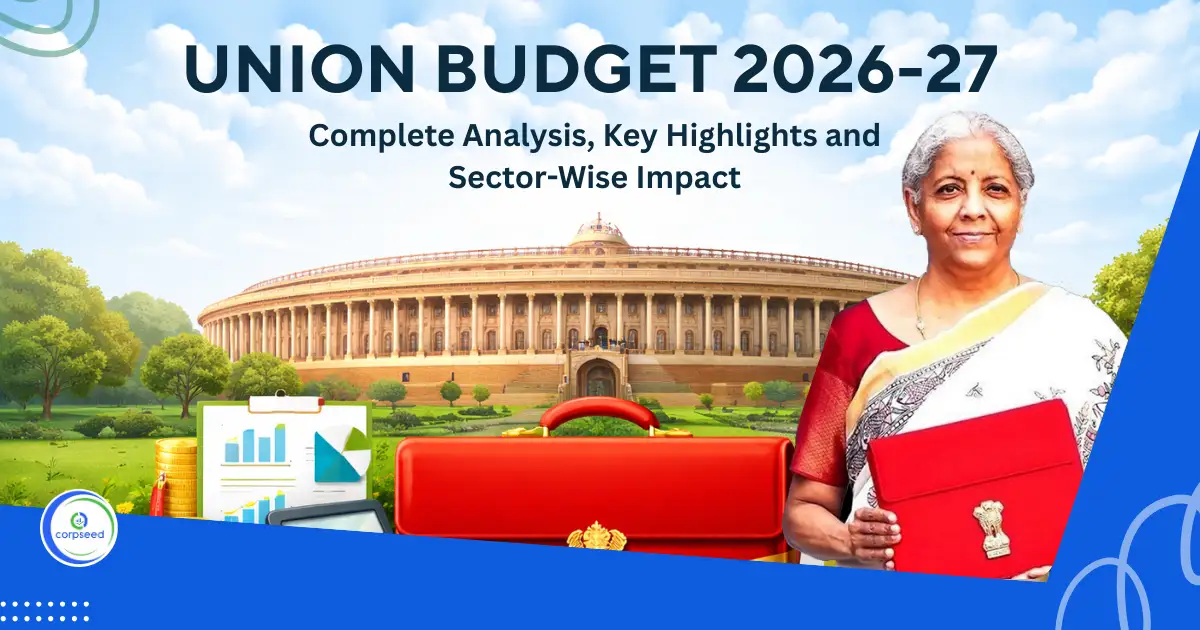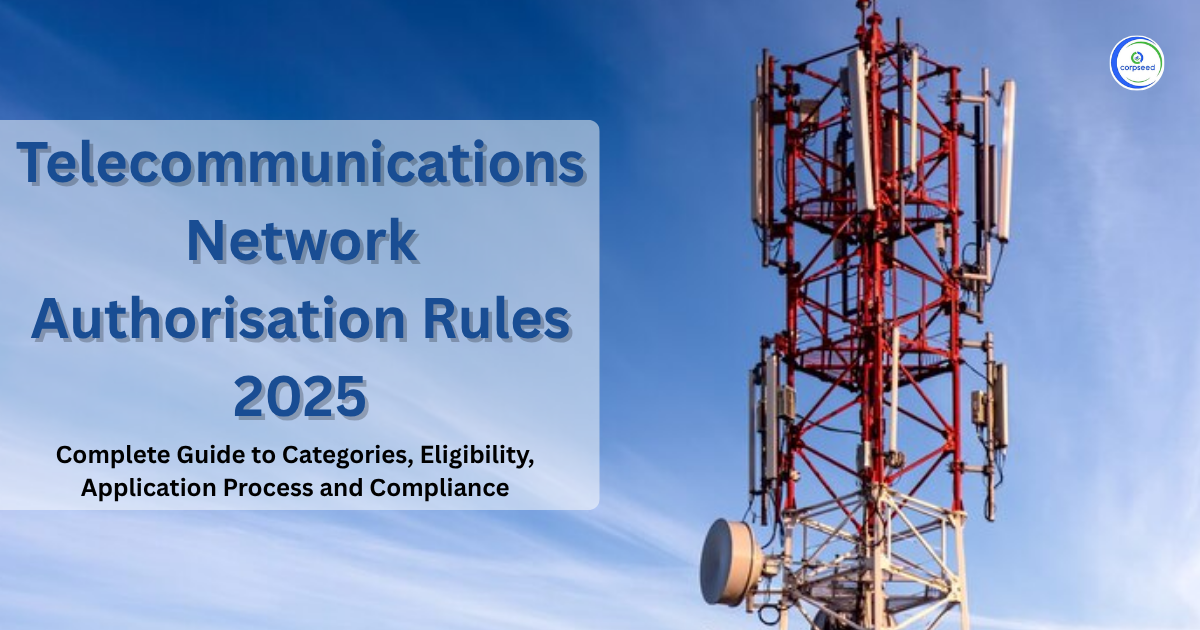Telecommunications play a crucial role in India's economic development and daily life. From mobile calls to internet services, telecom networks connect millions of people in urban and rural areas. The government controls telecom operations to ensure security, quality of service, and fair competition. Telecommunications Service Authorization Rules offer the framework under which telecom entities function, including spectrum use, virtual network operators, internet services, and long-distance communications. These rules safeguard national interests, protect consumers, and maintain smooth service delivery.
Table of Contents
- What Are Telecommunication Service Authorisation Rules?
- Role of TRAI Act in Telecommunication Authorisation
- Benefits of Telecommunication Service Authorisation Rules
- Spectrum Surrender and CNPN Users
- Intra-Circle Long Distance Traffic
- Declaration of Authorisation Type
- Public Utility and Emergency Services
- Internet Telephony Services
- Security Conditions for Authorised Entities
- Virtual Network Operators (VNO) Rules
- Internet Service Authorisation
- Security Conditions for Internet Services
- Long Distance Service Authorisation
- VNOs Providing Long Distance Service
- Conclusion
What Are Telecommunication Service Authorisation Rules?
The Telecommunication Service Authority Rules are the legal framework for all telecom service providers in India. They outline the eligibility criteria, licensing requirements, service obligations, and security protocols for operators. Every telecom company, whether it provides mobile access, internet services, or long-distance communications, must adhere with these rules.
The rules ensure that operators comply with the standards related to spectrum allocation, legal intervention, emergency services, and network monitoring. By adhering to these regulations, telecom companies maintain operational transparency and reliability. This framework also permits government authorities to monitor traffic, prevent resource misuse, and maintain national security in the telecom ecosystem.
Role of TRAI Act in Telecommunication Authorisation
The Telecom Regulatory Authority of India (TRAI) Act, 1997) plays a central role in India’s telecom framework. It established TRAI as the regulator responsible for tariffs, interconnection, service quality, and consumer protection. Even under the new Telecommunication Act, 2023, compliance with TRAI’s directions remains mandatory for all authorised operators. TRAI ensures fair competition, monitors call and internet quality, and safeguards user interests through transparency in billing and grievance redressal. By linking licensing conditions with regulatory oversight, the TRAI Act strengthens the effectiveness of telecommunication service authorisation rules in India.
Benefits of Telecommunication Service Authorisation Rules
These rules are crucial for maintaining a safe, efficient, and reliable communication network. They benefit service providers, government regulators, and end-users in multiple ways. Some of the key benefits are:
- Ensures Nationwide Security Compliance: Telecom operators must implement a system of legal interception, constantly monitor network traffic, and protect all communications. This reduces the chances of illegal use, assists in the prevention of crime, and strengthens national security.
- Guarantees Service Quality and Reliability: By setting standards for spectrum usage, bandwidth allocation, and emergency connectivity, these rules make sure that calls and data services remain consistent and consistent across India.
- Protects Consumer Rights: Operators need to deliver uninterrupted access to toll-free numbers, emergency contacts, and communication services. This ensures that consumers can access vital services during crises and disasters.
- Supports Efficient Network Management: Through spectrum management, interconnection obligations, and traffic regulations, operators can improve network performance and minimize congestion. This helps maintain seamless connectivity in both cities and remote areas.
- Promotes Fair Competition: Rules for virtual network operators and long-distance service providers stop spectrum misuse and bandwidth hoarding. This guarantees a level playing field, enabling both small and large operators to compete fairly.
--------------Blog Contact Form-------------
Spectrum Surrender and CNPN Users
Proper spectrum management is essential for uninterrupted telecom services. When an operator decides to surrender its spectrum, it must give six months’ notice to both the government and affected customers. This process ensures that Carrier Neutral Public Network (CNPN) are informed and can organize for network changes without interruption.
Operators are required to maintain documentation, submit formal requests to regulatory authorities, and update affected clients about the transition. Operative spectrum management reduces conflicts between operators and ensures ideal use of the frequency band, benefiting end-users from uninterrupted service. Failing to adhere can result in regulatory penalties and operational limitations.
Intra-Circle Long Distance Traffic
Long distance operators are allowed to carry intra-circle traffic within a telecom circle. They can do this directly or through interconnection with other authorized operators. Proper management of intra-circle traffic confirms that calls stay within the same area without any interruption.
By maintaining interconnection standards, operators can avoid network congestion, reduce dropped calls, and improved voice clarity. Urban areas benefit from high-speed connections, while rural areas receive reliable coverage. These regulations also guide operators in maintaining network dismissal to avoid service interruptions during peak hours or crises.
Declaration of Authorisation Type
Units holding numerous licenses, such as access service permits and internet service permits, must declare the type of service they intend to offer to the Central Government. This declaration is essential before commencing operations in any area.
For example, a company may have a nationwide Internet service permit but may only be authorized to provide service in certain states. The declaration elucidates the service boundaries, prevents regulatory conflicts, and ensures compliance with the terms of the license. To avoid legal complications, operators must submit detailed documentation and follow government notifications.
Public Utility and Emergency Services
Telecom operators are liable for ensuring uninterrupted access to public utilities and emergency services. These consist of police, fire, ambulance, and disaster response networks, as well as government-designated toll-free numbers.
Operators must have instruments in place to forward emergency calls, maintain network uptime, and respond quickly during crises such as natural disasters or large-scale emergencies. For instance, during floods, telecom networks coordinate with authorities to maintain lines of communication. By meeting these duties, operators contribute to national security and disaster awareness.
Internet Telephony Services
Internet telephony, or VoIP, has become a crucial part of digital communication. Authorised entities providing these services must adhere with interconnection, bandwidth allocation, and security standards. These rules ensure that internet telephony remains reliable, secure, and integrated with traditional telecom networks. Key obligations include:
- Connecting with PSTN, PLMN, or GMPCS networks.
- Allocating telecommunication identifiers and IP addresses as per government standards.
- Reporting IP allocations to the Central Government.
- Maintaining call data records including CLI, location, and other relevant parameters.
- Ensuring emergency call handling and meeting Quality of Service (QoS) standards.
Security Conditions for Authorised Entities
Security measures are basis of TSAR. Operators must implement and maintain lawful interception systems across all operational states. They are accountable for continuous monitoring of call data, failed calls, and forwarded messages.
- Lawful interception systems in every operational state.
- Continuous monitoring of network traffic, failed calls, and message forwarding.
- LIOR and CIOR systems to manage international roaming and legal compliance.
- SIM registration and personalisation to prevent fraudulent usage.
Complying with these security measures safeguards users, prevents misuse, and strengthens national cybersecurity frameworks. Non-compliance can result in penalties and license revocation.
Virtual Network Operators (VNO) Rules
Virtual Network Operators (VNOs) function using the spectrum of a parent Network Service Operator (NSO) without retaining their own spectrum. Compliance guarantees stabilized service quality and regulatory alignment, even for operators without dedicated infrastructure. VNOs must:
- Use identifiers and spectrum provided by the parent NSO.
- Avoid direct interconnection with other NSOs.
- Follow strict security, monitoring, and lawful interception rules.
- Provide limited internet telephony and leased circuit services via the parent network.
Internet Service Authorisation
Bodies sanctioned to provide Internet services can deploy an extensive range of offerings, such as Internet telephony, domestic leased circuits, M2M services, IPTV, and IFMC services.
Operators can use wireline, wireless, satellite, or submarine networks. They can launch Internet Exchange Points (IXPs), sell international bandwidth to other authorized entities, and operate Low-Power Wide Area Networks (LPWANs) using exempt spectrum. Compliance with security and traffic management rules ensures appropriate use and safeguards sensitive data.
Security Conditions for Internet Services
Internet service providers must maintain strong security systems. These measures help in preventing cyber threats, protect users, and ensure compliance with government orders. Key measures include:
- Log IP and NAT usage for at least two years.
- Block or restrict websites as mandated for national security.
- Provide packet copies for lawful interception.
- Maintain DNS servers within India.
- Report IP allocations to the Central Government.
Long Distance Service Authorisation
Long distance communication consist of National Long Distance (NLD) and International Long Distance (ILD) services. NLD operators manage intra- and inter-circle calls, domestic leased circuits, and calling cards. ILD providers handle international calls, IPLCs, and international calling cards.
Operators can rent bandwidth, handle traffic through approved gateways, and maintain CLI integrity. Regulations guarantees lawful interception, reduce the chances of misuse, and ensures seamless connectivity through borders.
VNOs Providing Long Distance Service
VNOs with long-distance authorisation confirm network security, preserve service quality, and avoid abuse of long-distance traffic channels. The VNOs with long-distance authorisation must:
- Connect only through their parent NSO network.
- Offer domestic leased circuits via the parent network.
- Adherence with lawful interception and monitoring requirements.
- Follow all security and reporting obligations.
Conclusion
The Telecommunication Service Authority's Rules are vital for maintaining a secure, efficient and reliable telecom system in India. They offer guidelines for spectrum management, VNO operations, Internet services, and long-distance traffic while protecting national security and consumer interests.
Ensuing with these rules ensures uninterrupted connectivity, high-quality communication, and effective emergency answer. They promote fair competition, protect consumer rights, and foster innovation in the telecom sector. By complying with these regulations, operators contribute to a robust and secure telecom ecosystem that benefits businesses, government agencies, and everyday consumers across India.
This portion of the site is for informational purposes only. The content is not legal advice. The statements and opinions are the expression of author, not corpseed, and have not been evaluated by corpseed for accuracy, completeness, or changes in the law.
BOOK A FREE CONSULTATION
Get help from an experienced legal adviser. Schedule your consultation at a time that works for you and it's absolutely FREE.









